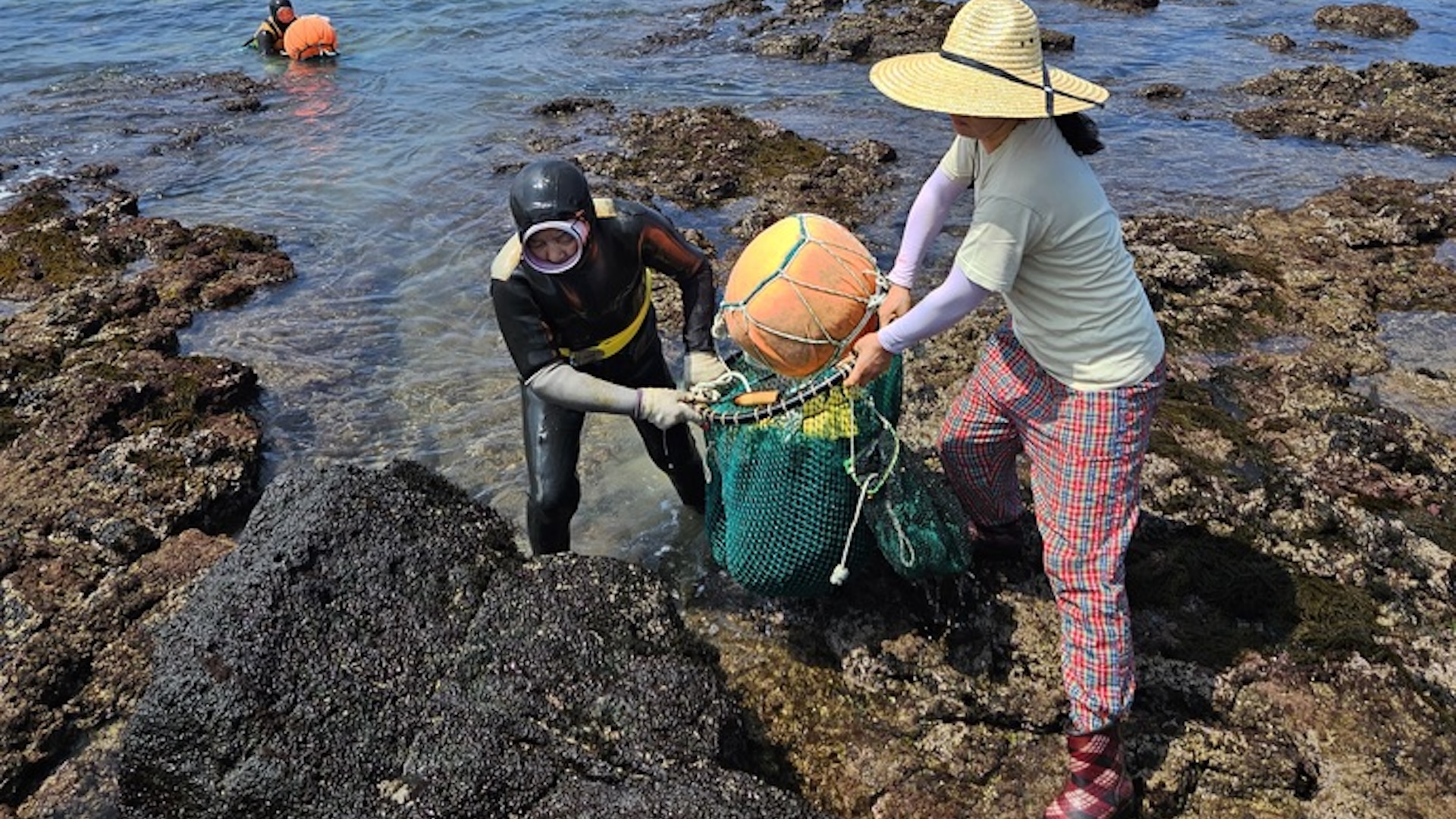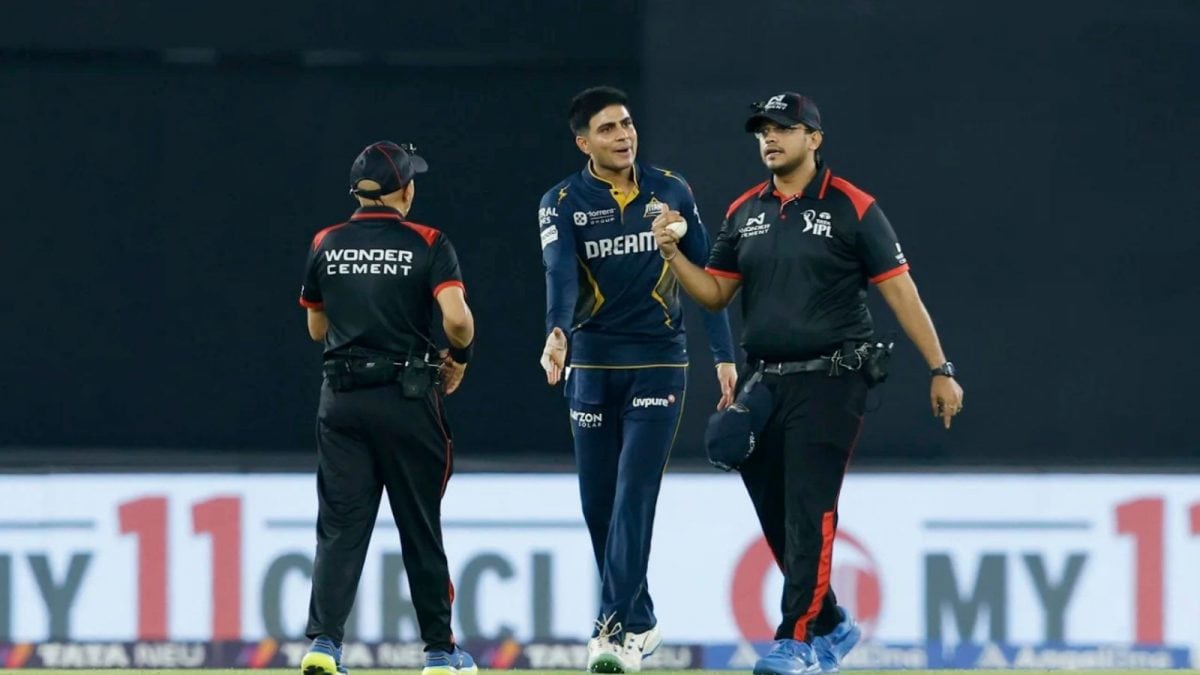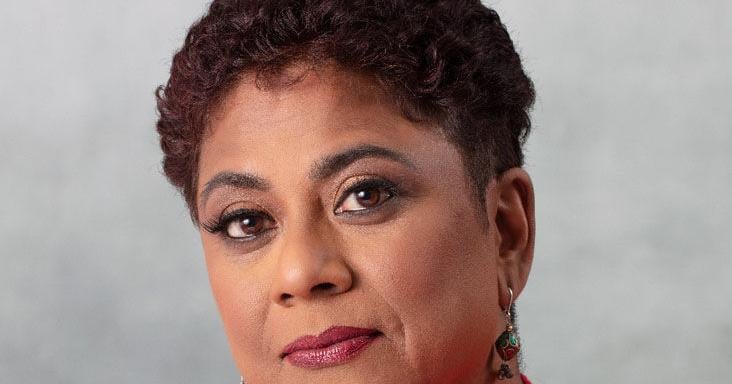Legendary 'women of the sea' in South Korea freedive well into their 80s. A new study hints at how.

A group of women on South Korea's largest island, Jeju, follow a unique tradition to put food on the table: They freedive to depths of nearly 33 feet (10 meters) without using any special equipment. Now, a new study reveals that these women carry distinct genes not found in South Koreans living on the mainland. These genes may be linked to the women's abilities to withstand frigid water and lower their blood pressure while diving, the scientists wrote in a study published Friday (May 2) in the journal Cell Reports . Jeju Haenyeo — which translates to "women of the sea" — begin diving for seafood at around the age of 15, gathering abalone, sea urchins and octopuses. According to UNESCO , members of the group harvest for up to seven hours a day for about 90 days of the year. They continue the practice well into their 80s, not even taking a break when pregnant. "It's incredible," Melissa Ilardo , study author and geneticist at the University of Utah, told Live Science. "It's not just that they're doing this in older age, but how athletically they're doing it is just mind blowing." Related: Gene mutation helps Andean highlanders thrive at altitude, and 'living fossil' fish live deep underwater Ilardo previously studied another population of people who freedive for seafood: the Bajau people, or "sea nomads," in Indonesia. The difference is, off the tropical island of Indonesia, the water is warm — around 80 degrees Fahrenheit (26.7 degrees Celsius) — while the water off Jeju can get below 55 F (12.8 °C). That's cold enough to cause hypothermia . But Jeju Haenyeo "will dive no matter the temperature," Ilardo said, descending up to 10 m, typically for about 30 seconds at a time, according to the paper. Sign up for the Live Science daily newsletter now Get the world’s most fascinating discoveries delivered straight to your inbox. Contact me with news and offers from other Future brands Receive email from us on behalf of our trusted partners or sponsors To investigate the secrets behind the group's cold water tolerance and diving stamina, Ilardo and her team compared the genetics of 30 Jeju Haenyeo to that of 30 female non-divers from Jeju and 31 others from mainland South Korea. Both Haenyeo and non-divers from Jeju shared the same genetic makeup, which was markedly different from their mainland cousins. This is likely due to those on the island having closely shared ancestry, the researchers suggested. A woman diver from Jeju Island carries seafood harvested from a dive. (Image credit: Melissa Ilardo) Compared to mainlanders, people from Jeju were far more likely to carry a distinct variant of a gene for sarcoglycan zeta, a protein tied to cold sensitivity. The protein is found in smooth muscles , which enable involuntary movements, like those involved in blood circulation. Research has suggested that it influences pain from coldness , as one would feel when immersing a hand in ice water. The variation in this gene may help explain the freedivers' cold water tolerance, Ilardo suggested. About one-third of the women from Jeju — divers and non-divers alike — carried a gene variant that codes for a protein called Fcγ receptor IIA. By comparison, only 7% of the women from the mainland carried this variant. Evidence suggests this protein helps regulate how muscles in the lining of blood vessels respond to inflammation . If the variant helps limit inflammatory effects in blood vessels, the scientists theorized, it may lower diastolic blood pressure. (Blood pressure is generally measured with a ratio of systolic blood pressure, which measures the pressure in the arteries during heart beats, to diastolic blood pressure, the pressure between beats.) The researchers explored this idea with a simulated dive. They asked each participant to hold their breath while submerging their face into a bowl of cold water, which triggers the diving reflex . "Your body responds as if you're diving, and that's because the nerve that actually triggers the dive response is in your face," Ilardo said. This reflex prompts the body to conserve oxygen by slowing heart rate and constricting blood vessels, helping provide vital organs with an adequate blood supply, she added. Jeju Haenyeo continue to dive well into their 80s, and even during pregnancy. (Image credit: Melissa Ilardo) In general, the participants from Jeju had higher overall blood pressure than did the mainland participants, and during the simulated dive, both groups experienced higher diastolic blood pressure than their baselines. However, the researchers found that the presence of the Fcγ receptor IIA gene variant is tied to significantly lower diastolic blood pressure in the Jeju participants during diving. This gene variant may help protect Jeju Haenyeo from complications associated with diving-induced hypertension, or high blood pressure, which could be particularly harmful in pregnancy, the team suggested. These hypotheses are yet to be confirmed, though. "The frequency of both genetic variants is the same across all Jeju Islanders," Ilardo noted. "Essentially, it seems like everyone from Jeju is equally likely to have descended from divers. Or in other words, you're either an active diver, or a descendent of a diver." Related: Free divers' heart rates can drop as low as 11 beats per minute Tatum Simonson , a geneticist and physiologist at the University of California, San Diego Health who was not involved in the study, thought linking the Haenyeo's physiology to their genetics was really valuable to understanding how people respond to hypoxia, or low oxygen levels. Simonson studies the genetics and physiology of people who live in high-altitude areas, where the atmospheric oxygen levels are lower than at sea level. "It could be that some of the same genetic variants are found in other groups," she said, "and so, that could be important in terms of looking at how people respond to the stress of hypoxia." Various medical conditions, including heart and lung diseases, can also push the body into a hypoxic state , Simonson added. Broadly studying the genetic underpinnings of how the body adapts to low-oxygen situations could potentially help scientists understand how the body responds in these disease states. Some of the differences seen in the divers and non-divers might come down to training, rather than genetics, Ilardo added. In addition to seeing the divers' blood pressure fall, their heart rates were also affected by diving. The heart rate of one diver dropped more than 40 beats per minute in just 15 seconds during a dive — an effect not seen in the other, non-diving populations. This ability seems to be the result of a lifetime of training, instead of genetic, Ilardo said. The analysis didn't reveal a particular gene tied to the ability, and what's more, the divers and non-divers from Jeju showed dramatic differences, despite sharing much of their genetic makeup. Our bodies respond to extreme environments either through evolutionary adaptation, which takes place over generations, or through acclimatization, which takes place within a lifetime, Cara Ocobock , a human biologist and anthropologist at the University of Notre Dame told Live Science. "Even if you have a group of people who have generationally been doing this diving for a long period of time, you're going to see individual differences in how each person responds," said Ocobock, who was not involved in the new work. She studies how reindeer herders in Finland cope with cold temperatures.



















